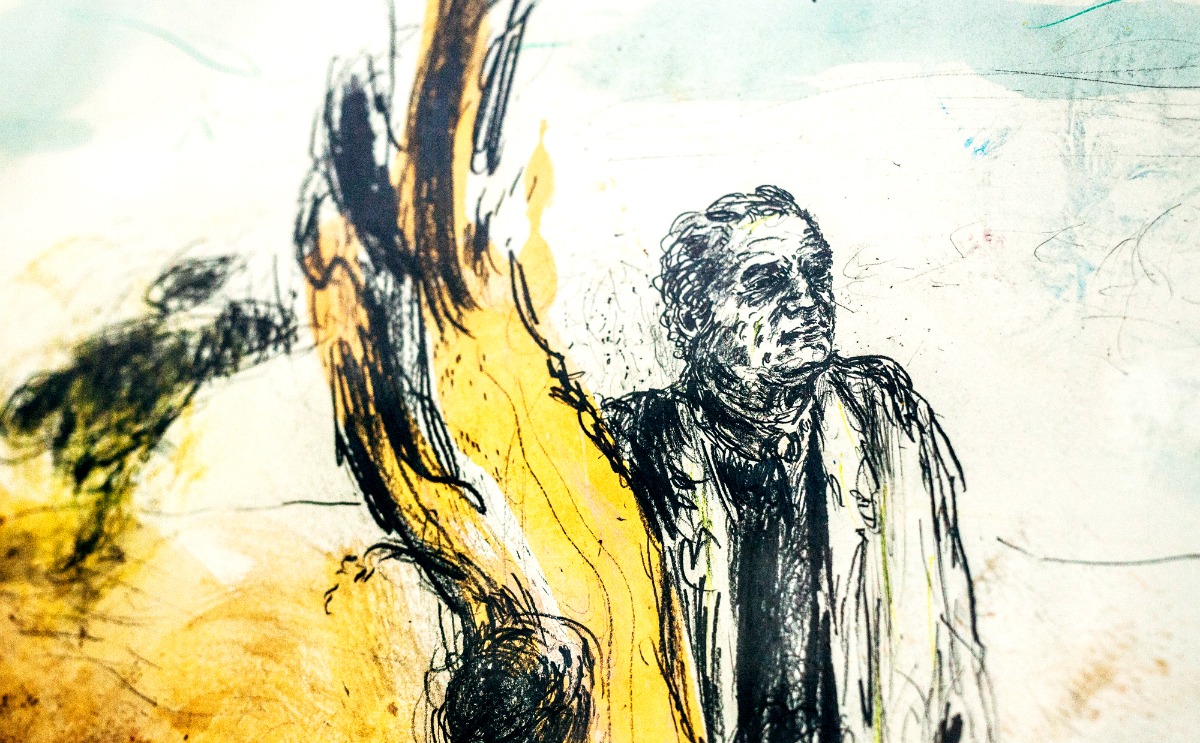“from cloud to cloud, the human course, what a road it is,
with tiny steps, comic and exhausted”
In the realm of Greek modernist poetry, Nikos Karouzos introducing us to Barbarossa, a character who can embodies the deep emotional and physical torment experienced by refugees. Barbarossa, depicted as an old man with a gray beard, walks on desolate heights, surrounded by the relentless music of his surroundings. With wooden clogs adorning his feet and a black, gaping hole in his chest symbolizing his anguish, Barbarossa becomes a poignant representation of the uncertainties faced by refugees in camps, cities and the challenges of the asylum system and a panful process of finding themselves in the new society.
“Ah, if I could only eat the light! and not see
the iron pieces crossing on the clocks…”
Refugee life is a journey defined by turmoil and despair, where individuals find themselves trapped in a perpetual struggle for survival while they look past to find connection with today. The scars of their past often linger, causing nightmares and psychological distress. The challenges faced within the new society, compounded by the trauma endured, can exacerbate their emotional turmoil.
“Life is a strong opponent, like the Quran”
Just like Barbarossa, they often face a lack of concern from others, leaving them to confront their inner demons alone. This limbo engendering a sense of hopelessness, leaving people in a constant state of anxiety, as they were unable to plan for their future or secure a stable life.
Barbarossa’s duality, represented by his two faces, mirrors the complex nature of the refugee experience. On one hand, refugees are individuals with unique stories, talents, and aspirations. They bring with them a rich tapestry of cultures, skills, and perspectives that can enrich their host communities. On the other hand, they are often seen through the lens of stereotypes and stigmatization, facing discrimination and marginalization.
“I can’t help myself, the senses lead me to the senses.”
Nikos Karouzos was a renowned poet, born on July 17, 1926, in Nafplio, and he passed away on September 28, 1990, in Athens. His father was a teacher, and his mother was the daughter of a priest and a teacher. Karouzos’ life was marked by political involvement and personal challenges.
During the civil war, he enlisted in the National Liberation Front, which led to persecution. After the capitulation of Varkiza, he faced exile. Throughout his high school years, Karouzos participated in EPON and was subsequently exiled to Ikaria in 1947 and Makronissos in 1951. However, due to a nervous breakdown, he left Makronissos in 1953.
Nikos Karouzos’ literary contributions have left a lasting impact, and his life’s experiences have undoubtedly shaped the depth and significance of his poetic expression.








